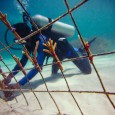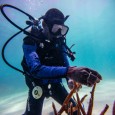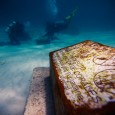Supporting Reef Conservation by Promoting Coral Garden Tourism
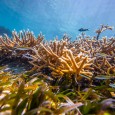
Some of the most beautiful beaches on the planet and the most incredibly diverse marine ecosystems are found in the Dominican Republic. Coral reefs provide crucial habitat for many fish species, play an important role in the protection and formation of beaches and provide recreational and tourism opportunities. However, coral reefs are under serious threat as a result of indiscriminate overfishing, poor agriculture practices, coastal development and climate change.
Populations of staghorn coral (Acropora cervicornis), one of the main reef building species in the Caribbean, have declined more than 98% in the last four decades. To confront these threats, the PUNTACANA Ecological Foundation with support from the Inter-American Development Bank through the Multilateral Investment Fund, is leading the way with an innovative coral conservation and restoration programs.
In terms of the reef restoration, surviving coral fragments are collected from their natural habitats and cultivated in marine hatcheries, or nurseries. The nurseries provide a refuge where the coral can flourish. Later, various methods are taught on how to return the coral back to the reefs. More than 1,665 meters of coral tissue have been grown in these marine nurseries in Punta Cana and transplanted back into the reefs. On a national level, forty-four transplant sites have been established in the country, with thirty-five of them in Punta Cana. More than 1,000 meters of coral tissue has been transplanted back into the reefs.
In addition, the Ecological Foundation has also created the “PADI Coral First Aid,” diving certification course, designed to involve local fishermen and tourists in the restoration program. The Foundation has created nine marine nurseries around the country with four more under development.
The Ecological Foundation, in conjunction with the University of Miami and Counterpart International, has certified 10 local fishermen in the restoration of coral reefs. They have also educated nearly 450 students and tourism professionals in this area.
The Ecological Foundation’s coral reef protection program provides an alternative source of income generation, protects the fragile ecosystem and provides support for the Dominican tourism industry.
Without coral reefs, there would be no beaches and without beaches this incredible paradise would cease to exist.
Country of origin: Dominican Republic
Year of completion: 2014
Length: 4.22 min.
Format: DVD
Language: English
Directors: Juan Castañeda and Juan Mejia
Executive Producers: PUNTACANA Ecological Foundation, Inter-American Development Bank and the Multilateral Investment Fund
Producer: Juan Yepes
Photography: Juan Castañeda
Editors: Juan Castañeda and Juan Mejia
- September 10, 2014
6:00 PM
Santo Domingo, UNPHU - September 11, 2014
6:30 PM
Baní, Centro Cultural Perelló
Biografía de los directores, Juan Mejía Botero y Juan Carlos Castañeda
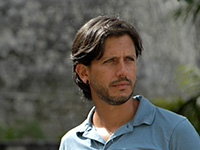 Juan Mejía Botero
Juan Mejía Botero
is an award winning film director with more than a decade of experience working in short and feature length documentaries. His focus is community, grassroots media and collaborative documentaries.
Juan, from Bogota, Colombia, immigrated to the United States where he earned a degree in Anthropology and Sociology from Swarthmore College, a Masters degree in Latin American Studies at Texas University and another Masters in Social Documentaries from the University of California, Santa Cruz.
As a Thomas J. Watson Fellow, Juan traveled, lived and worked as a facilitator of community video in Colombia, Brazil, Peru, Chile and Ecuador. His documentaries are profoundly influenced by his collaboration with grassroots organizations throughout the regions where he has worked.
His debut as a director was the documentary, Uprooted, that tells the story of an Afro-Colombian family displaced along the Pacific Coast of Colombia. The film, which won various prizes, was shown in festivals in the United States and internationally then was later broadcast on PBS.
Juan has directed several short and longer documentaries on such issues as forced displacement, ethnic autonomy, state-sponsored violence, natural resources and other human rights issues. His films have been widely viewed in festivals and on television. His most recent feature length documentary The Battle for Land won a production grant from the Ministry of Culture, the Colombia Fund for Cinema and a post-production grant from the Tribeca Film Institute. It was expected to have been finished last year, in 2013.
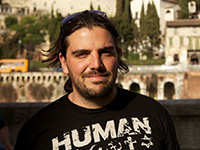 Juan Carlos Castañeda is a director and cinematographer with vast experience in feature films, documentaries, shorts and video projects. He also has a great deal of experience using HDSLR photography, HD video photography, post-production, color corrections and motion graphics.
Juan Carlos Castañeda is a director and cinematographer with vast experience in feature films, documentaries, shorts and video projects. He also has a great deal of experience using HDSLR photography, HD video photography, post-production, color corrections and motion graphics.
He holds a degree in multimedia arts from the Royal Melbourne Institute of Technology University in Melbourne, Australia and a Masters in Art in Film Production from Chapman University of Los Angeles, California.

